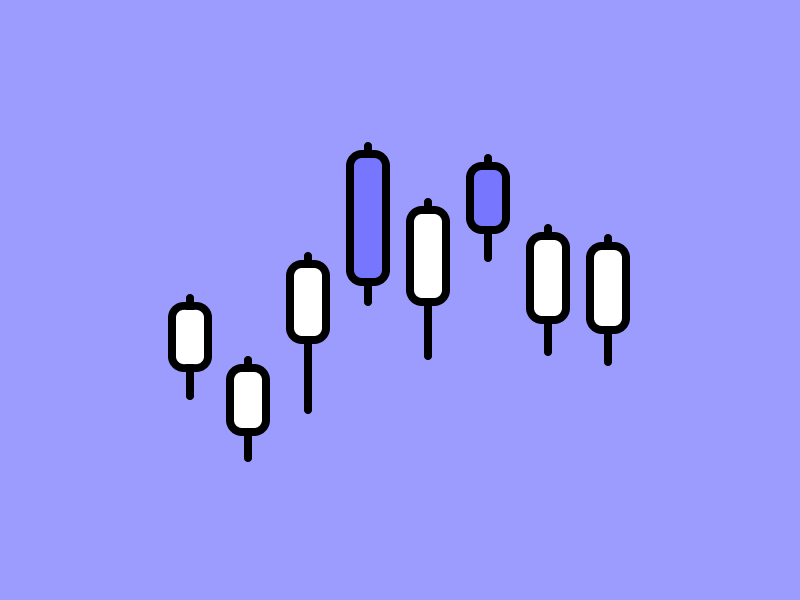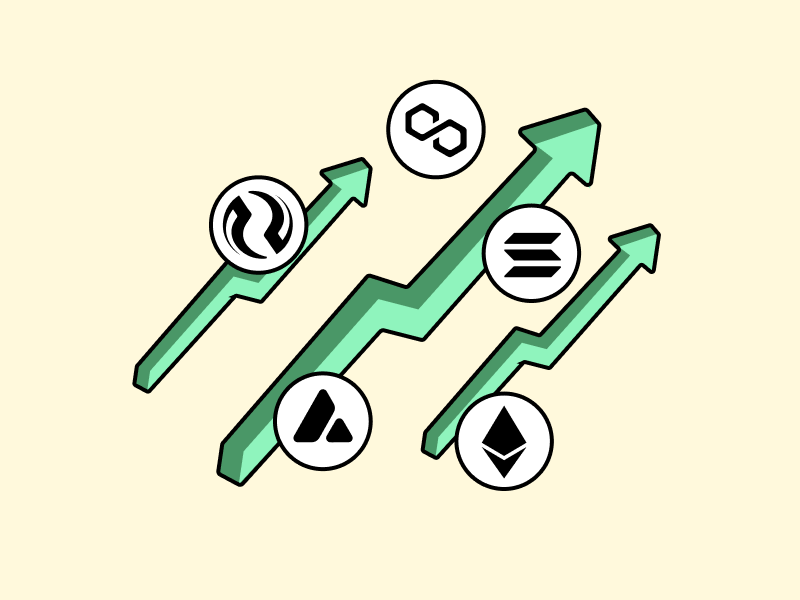The New Giant Ally: BlackRock’s U-Turn Drives Crypto Adoption
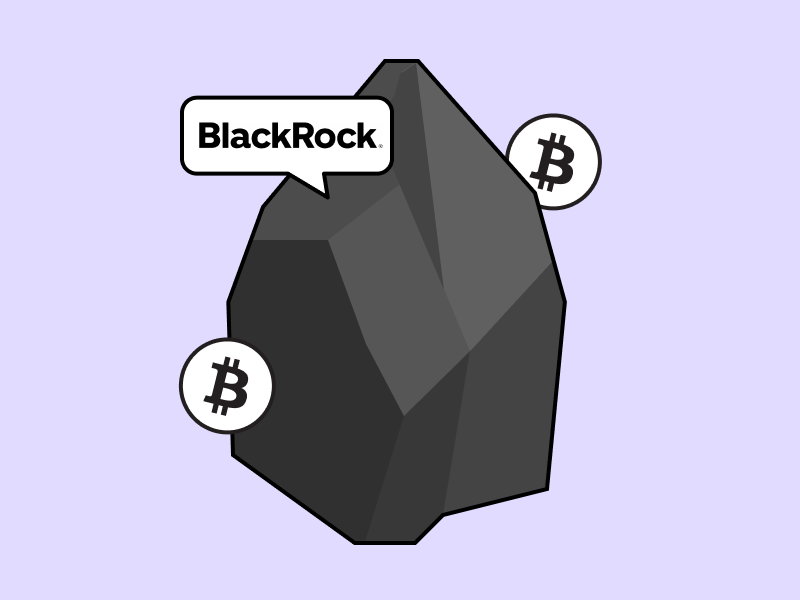
For crypto to truly take off, it needs to go big and go mainstream. Fortunately, institutional investors are increasingly flocking to the crypto market. A big part of this trend is thanks to BlackRock, which has been making big moves in crypto lately. But who exactly is BlackRock? What have they done, and why is their involvement so significant? Find the answers in the following article.
Ringkasan Artikel
- 🪨 BlackRock, the world’s largest fund manager, has recently played an important role in the crypto industry.
- ⏳ Initially, BlackRock did not want to recognize BTC as an asset class. However, as the market and demand for crypto grew, its stance began to soften and become more supportive.
- 🏄 BlackRock’s support of the crypto market includes creating the BUIDL tokenized asset, offering Bitcoin and Ethereum ETFs, and providing funding to the DeFi sector.
- 🚀 BlackRock’s involvement in the crypto market has increased crypto legitimacy, expanded market access, boosted liquidity, and maintained market stability.
About BlackRock
BlackRock is the world’s largest asset management firm. It is the preferred choice for many investors, from retail and high-net-worth individuals to large institutional investors such as pension funds and governments.
BlackRock is renowned for its data-driven and cautious investment approach. This reputation has enabled BlackRock to manage assets exceeding US$10 trillion.
BlackRock’s decision to include Bitcoin and Ethereum in its managed assets has generated significant attention. This is especially noteworthy considering that BlackRock’s CEO, Larry Fink, had previously been a vocal critic of Bitcoin and refused to recognize it as an asset class. With BlackRock’s stamp of approval, Bitcoin and Ethereum are poised to become even bigger.
BlackRock’s Stance on Cryptocurrencies
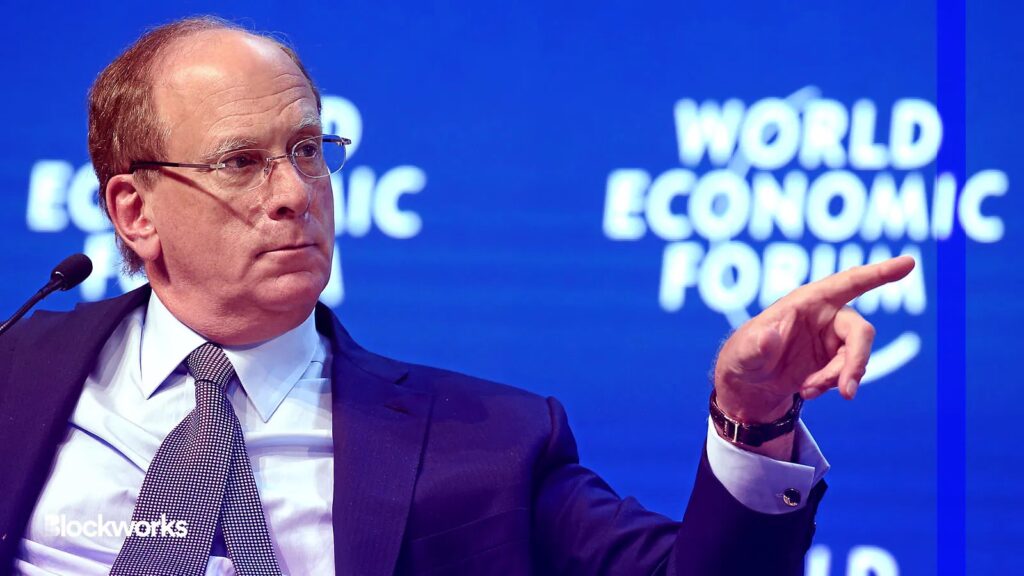
Along with other traditional financial institutions, BlackRock was initially skeptical and even opposed to Bitcoin and other crypto assets as investment products. However, as the crypto industry matured, regulations became more apparent, and demand grew, BlackRock softened and changed its stance.
Not Recognizing BTC as an Asset Class
Initially, BlackRock viewed BTC with suspicion. Fink held a particularly strong and cynical position towards BTC. At the 2017 Institute of International Finance meeting, he stated that Bitcoin was a digital asset used for money laundering index.
“Bitcoin shows how much demand there is for money laundering in this world. That’s really all Bitcoin is good for,” he said.
During this period, Bitcoin had a negative perception. Shortly after Fink’s statement, JPMorgan CEO Jamie Dimon called people who owned BTC “stupid” and claimed BTC was a “fraud.”
Two months after Larry and Jamie's statements, BTC reached an all-time high of $19,700.
A Softening Stance
In July 2018, Fink’s view of Bitcoin and the crypto industry began to soften. In an interview with Reuters, he mentioned that BlackRock studied blockchain technology. However, he saw that there would not be a high demand for crypto assets in the future.
When this news was published, BTC’s price fell and stood at $6,741. Entering December 2020, Fink’s skepticism towards BTC was fading. At that time, BTC was moving towards $20,000 for the second time in history. He stated that BTC had captured the attention and imagination of many people.
“Bitcoin is still untested, pretty small relative to other markets. Can it evolve into a global market? Possibly,” he explained.
Want to know what it takes for mass crypto adoption to happen? Read more here.
Recognizing BTC as an Asset Class
Entering 2023, BlackRock has fully recognized BTC as an asset class. This is reflected in their steps from creating BUIDL, providing Bitcoin and Ethereum ETFs, and entering the DeFi sector through Ethena and Maker DAO.
Fink openly admitted that he was initially skeptical of BTC. However, he finally realized and acknowledged BTC after studying Bitcoin and blockchain.
“Okay, I admit it, my opinion about Bitcoin five years ago was wrong,” he said in an interview with CNBC.
Now, Fink believes that Bitcoin is a legitimate asset class akin to digital gold. He sees Bitcoin’s potential coming from uncorrelated returns, as BTC does not always rise and fall with other assets like stocks, making BTC an attractive option for those who want to diversify.
Furthermore, Fink believes that what makes Bitcoin attractive is its role as a hedge against currency debasing and geopolitical instability. He said that Bitcoin functions like gold, the demand will rising when inflation and instability are high.
BlackRock Enters the Crypto Market
After acknowledging Bitcoin as an asset class, BlackRock has gradually begun to enter the crypto market. Here are some of the steps BlackRock has taken to expand its penetration in the crypto market.
Creating BUIDL
BlackRock’s first step in the crypto industry was to promote tokenization. Tokenization allows ownership rights to an asset to be represented as a token and stored on a blockchain. Fink believes that the tokenization of securities will be the key to the next generation of financial markets.
He says tokenization using distributed ledgers on blockchains allows for real-time transaction settlements. He even believes tokenization can make the current financial ecosystem more efficient, transparent, and secure. Tokenization also serves as a bridge connecting traditional assets and their investors to the crypto market.
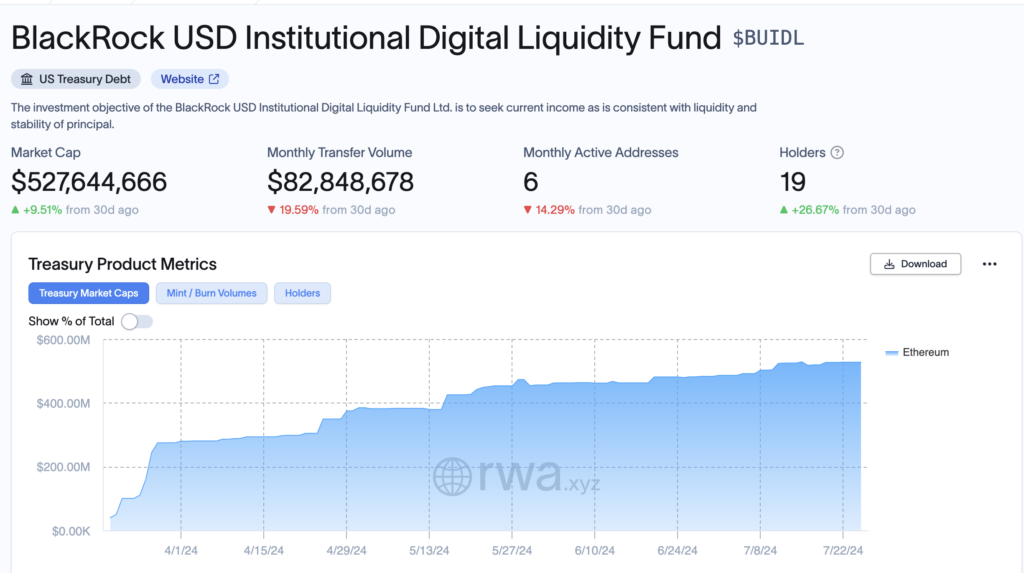
As a result, in March 2024, BlackRock launched an Ethereum-based tokenization called the BlackRock USD Institutional Digital Liquidity Fund (BUIDL). It is a tokenization of US deposits, money markets, and government bonds. Currently, BUIDL has a market capitalization of $527 million, the largest among other tokenization products.
The following article explains tokenization and its potential in the financial market.
Introducing ETF Products
After BUIDL, BlackRock’s next big step into the crypto market was registering a spot in Bitcoin ETF. At that time, the registration process experienced a long tug-of-war as the SEC was reluctant to recognize crypto. However, after a long process, in January 2024, BlackRock officially traded its spot Bitcoin ETF, the iShares Bitcoin Trust (IBIT).
It is noted that IBIT became the spot Bitcoin ETF with the largest assets under management, at $19.68 billion. This amount surpassed the spot Bitcoin ETF of Grayscale ($19.65 billion). Successfully overtaking Grayscale proves BlackRock’s dominance in the Bitcoin ETF landscape. As we know, Grayscale was the first to register a spot Bitcoin ETF and also defeated the SEC in a lawsuit over the legality of spot Bitcoin ETFs.
BlackRock also quickly registered a spot Ethereum ETF with other investment managers. On July 23, 2024, the spot Ethereum ETF was officially traded for the first time. BlackRock saw the largest inflow on the first day, totaling $266.5 million through the iShares Ethereum Trust ETF (ETHA) product.
You can learn more about the impact of the spot Bitcoin ETF and the spot Ethereum ETF.
Entering the DeFi Sector
BlackRock’s BUIDL is a tokenization and a bridge connecting traditional assets with crypto. BUIDL has recently been actively funding various Decentralized Finance (DeFi) platforms operating in the Real World Asset (RWA) sector.
This step shows BlackRock’s confidence in the DeFi sector’s ability to generate yields that can boost BUIDL’s performance. So far, BUIDL seems to want to channel its funds into two DeFi platforms: Ethena and MakerDAO.
Ethena recently shared its plan to allocate a portion of its stablecoin collateral, worth 235 million USDT, and $45 million from its surplus reserve fund to the Real-World Asset (RWA) sector.
Jonathan Espinosa from Securitize, BUIDL’s distribution partner, said they want to participate in Ethena’s plan. He said they would ask for $34 million from Ethena’s $45 million reserve fund.
Meanwhile, MakerDAO has just released a contest called the Spark Tokenization Grand Prix, which aims to encourage the onboarding of RWA tokenization up to $1 billion. The initiative has then attracted the interest of various parties, including BlackRock.
“We will support the initiative together with BUIDL,” said Carlos Domingo, CEO of Securitize.
Find out why RWA is highly desired and becomes a potential sector here.
Impact of BlackRock’s Presence on the Crypto Market
Here are some of the impacts of BlackRock’s presence on the crypto market:
⚖️ Legitimacy. BlackRock’s participation in the crypto market will ultimately increase crypto assets’ legitimacy in investors’ eyes, especially institutional investors. Additionally, BlackRock’s presence will prompt regulators to oversee the crypto market more closely.
🏦 Market Growth. As we know, BlackRock is the largest asset manager. This means a new market segment can access various crypto products as investment instruments. This new liquidity can support the continued growth of the crypto market.
📈 Stability. Unlike retail investors, institutional investors and high-net-worth individuals generally invest with long-term goals. This can help stabilize the prices of BTC and ETH. Additionally, BlackRock’s large liquidity can prevent very sharp corrections.
Conclusion
BlackRock, the world’s largest asset manager, has recognized BTC and ETH as legitimate asset classes. Previously, they were skeptical and unwilling to acknowledge crypto assets. However, they changed their stance due to the crypto market development. Nowadays, crypto has more transparent regulations and is in growing demand.
BlackRock is now actively involved in the crypto market by launching products such as the spot Bitcoin ETF (iShares Bitcoin Trust) and the spot Ethereum ETF (iShares Ethereum Trust). In addition, BlackRock has a tokenization product called BUIDL, which has become a bridge connecting traditional assets to the crypto market.
BlackRock’s entry into the crypto market is expected to have profound implications. From improving crypto’s legitimacy and driving market growth to providing stability through long-term investments and ample liquidity. This step shows that traditional finance is starting to embrace crypto.
Buy Crypto Assets on Pintu
Looking to invest in crypto assets? No worries, you can safely and conveniently purchase a wide range of cryptocurrencies such as BTC, ETH, SOL, and others safely and easily at Pintu. Pintu diligently evaluates all its crypto assets, highlighting the significance of being cautious.
Pintu is also compatible with popular wallets such as Metamask to facilitate your transactions. Download Pintu app on Play Store and App Store! Your security is guaranteed because Pintu is regulated and supervised by Bappebti and Kominfo.
Aside from buying and trading crypto assets, you can expand your knowledge about cryptocurrencies through various Pintu Academy articles. Updated weekly, all Pintu Academy articles are made for knowledge and educational purposes, not as financial advice.
References
- Fred Imbert, BlackRock CEO Larry Fink calls bitcoin an ‘index of money laundering’, CNBC, accessed on 25 Juli 2024.
- James Cirrone, BlackRock CEO has come a long way on bitcoin since 2017, Blockworks, accessed on 25 Juli 2024.
- Rajagopal Menon, The making of a crypto evangelist: Larry Fink’s transformative journey, Economic Times, accessed on 25 Juli 2024.
- CNBC, BlackRock CEO Larry Fink: I believe bitcoin is a legit financial instrument, accessed on 25 Juli 2024.
- Joe Light, Why BlackRock and Other Fund Companies Are Pushing Deeper Into Crypto, Barrons, accessed on 25 Juli 2024.
- Krisztian Sandor, BlackRock’s $500M Tokenized Fund Pitches for Ethena’s RWA Investment Plan; ENA Rallies 22%, CoinDesk, accessed on 25 Juli 2024.
- Mehab Qureshi, BlackRock’s BUIDL to Participate in MakerDAO’s $1 Billion RWA Push, The Defiant, accessed on 25 Juli 2024.
Share
